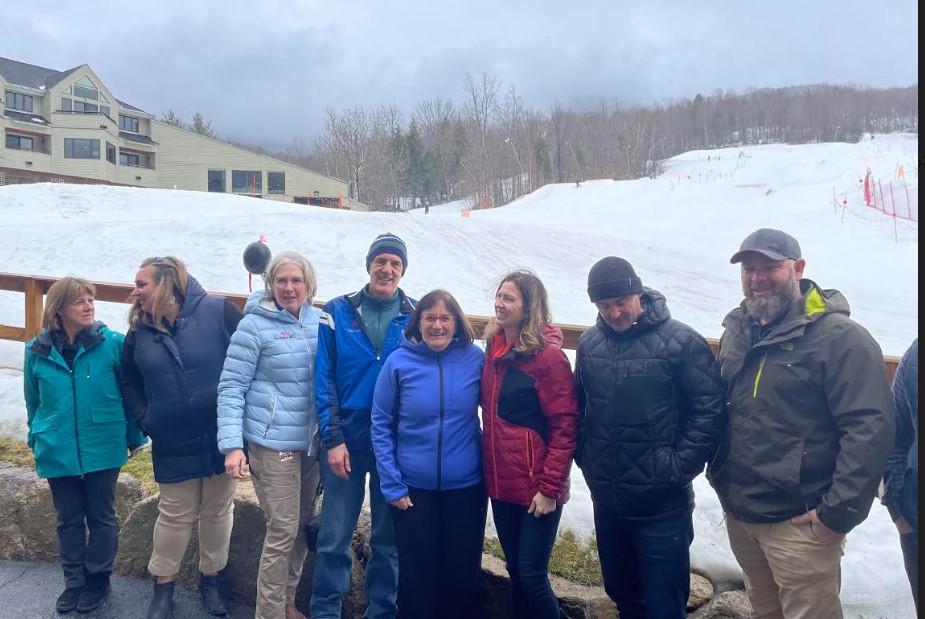By PAULA TRACY, InDepthNH.org
LINCOLN – Northern New Hampshire tourism officials met at Loon on Friday with Congresswoman Annie Kuster, D-NH, to discuss ways that the federal government can help with climate change, utility costs and their relationship with White Mountain National Forest, among other issues.
Officials from White Mountain Attractions, Jackson Ski Touring Foundation, Great Glen Trails, Loon, and Ski New Hampshire heard about her hopes for the passage of the bipartisan SHRED Act, which would have many benefits to their business.
For the first time, it would allow their rental payments to the Forest Service to use federal land to go directly to the agency rather than the fund in Washington and help on the ground here to nourish the region’s outdoor economy.
Participants in the meeting, convened by the congresswoman, hoped it would lead to better collaboration on future projects, permitting, and overall relations with the WMNF, which controls over 800,000 acres in northern New Hampshire and Maine and is a huge tourism draw.
Some think it is operated as a state park, but it is not. It is a multi-use forest operated by the US Department of Agriculture.
Kuster, whose father, Malcolm McLane, was a partner in the development of Wildcat Mountain, recalled the early days of snowmaking and her father in the Pinkham Notch parking lot with tears running down his face as he looked at the dollars lost as the rain fell on their manmade product.
The sentiment resonated with officials in the snow industry today who said they have gone from seeing electric rates per kilowatt hour go from fewer than 10 cents per hour to $3 at the beginning of the season when they need to make snow now being used on their mountains.
In the summer and fall months, the tourism industry has struggled coming out of the past two years of a COVID-19 pandemic which has seen a tidal wave of new visitors clamoring to get away and leaving a mess, unaware of the leave-no-trace ethic in the woods and trails.
Kuster said she is hopeful that a bipartisan effort on SHRED and a caucus representing states with a ski and snowboard industry can make some strides this year.
She also noted there are considerable renewable energy grants under the Biden Administration efforts that her office is willing to help the industry connect on, and some Northern Borders grant money which could be helpful in capital projects.
The state has enjoyed considerable federal dollars which are now in place to help state parks with a backlog of deferred maintenance at its almost 100 parks.
The meeting comes at a time when the tourism industry is hoping for lots of visitors as this is the long Presidents Day Weekend which flows into a major vacation week for many Massachusetts school districts.
It is often a time for making or breaking revenue in bad snow years and this will likely be counted among the most challenging winters of the past decade.
The good news is that just about all ski areas in the state have more than 50 percent and as much as 100 percent of their terrain open with spring to man-made conditions, thanks in large parts to manmade snow which uses expensive electricity to be made.
Even Nordic terrain is enjoying a pretty good season, said Ellen Chandler, executive director of Jackson Ski Touring Foundation, which just added snowmaking to its terrain.
She said the winter has been solid with new and returning groups enjoying lots of open terrain and good conditions and she expects a busy week with the weather looking fairly seasonable.





